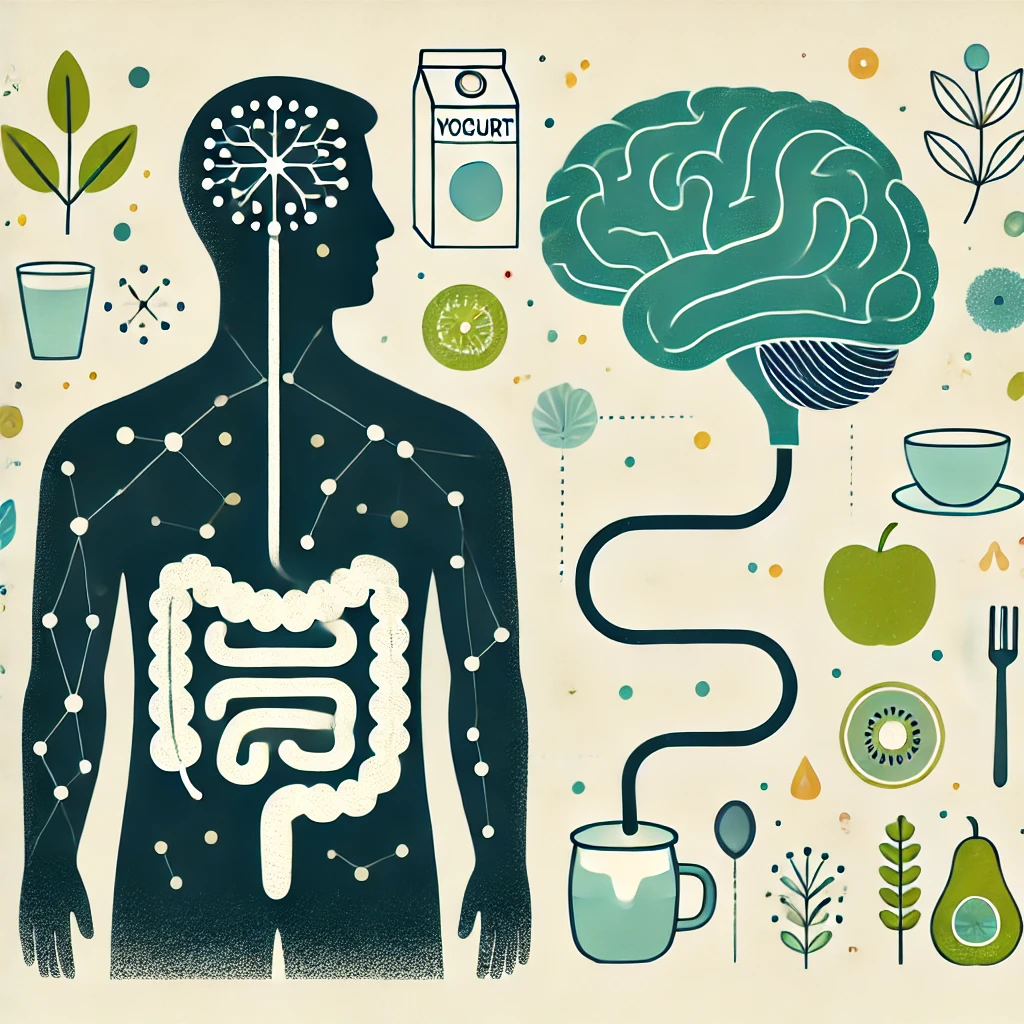The phrase “trust your gut” has more significance than you might think. Emerging research reveals that your gut health plays a crucial role in your mental wellness. The gut-brain connection is a powerful system that communicates in both directions, influencing everything from mood and cognition to stress levels. Understanding this connection and maintaining a healthy gut can lead to improved mental health and overall well-being.
What Is the Gut-Brain Connection?
The gut-brain connection refers to the communication network between your digestive system and your brain, known as the gut-brain axis. This axis involves multiple biological systems, including:
- The Central Nervous System (CNS): Which includes the brain and spinal cord.
- The Enteric Nervous System (ENS): Sometimes called the “second brain,” the ENS is embedded in the walls of your gastrointestinal tract and contains millions of neurons.
- The Microbiome: The gut hosts trillions of microorganisms, including beneficial bacteria, that influence the body’s overall health.
These components communicate through biochemical signaling involving neurotransmitters like serotonin and gamma-aminobutyric acid (GABA), which regulate mood and emotions. The vagus nerve, a critical part of this connection, serves as a communication pathway between the gut and brain.
How Gut Health Affects Mental Health
1. Serotonin Production
Did you know that around 90% of serotonin, a neurotransmitter that contributes to feelings of happiness and well-being, is produced in the gut? The gut microbiome plays a significant role in this production. An imbalance in gut bacteria can reduce serotonin levels, potentially leading to mood disorders like depression and anxiety.
2. Inflammation and Mental Wellness
An unhealthy gut can trigger an immune response, leading to chronic inflammation. Research suggests that this type of inflammation can influence brain function, contributing to mental health issues. When the gut barrier is compromised, harmful substances can enter the bloodstream, triggering systemic inflammation that may affect mood and cognition.
3. The Role of the Microbiome
The gut’s beneficial bacteria help break down food, produce vitamins, and maintain the gut lining. These bacteria also play a role in producing short-chain fatty acids (SCFAs) like butyrate, which have anti-inflammatory properties and support brain health. An imbalance in these bacteria, known as dysbiosis, can disrupt the gut-brain communication, affecting mood and stress levels.
Signs That Your Gut Health May Be Affecting Your Mental Wellness
If you’re experiencing any of the following symptoms, your gut health could be influencing your mental state:
- Chronic Digestive Issues: Bloating, gas, and irregular bowel movements can indicate an imbalance in gut bacteria.
- Mood Swings and Irritability: Changes in your gut flora can affect your mood and emotional balance.
- Fatigue and Brain Fog: A compromised gut can lead to poor absorption of nutrients, which affects energy levels and cognitive function.
- Increased Anxiety or Depression: Persistent feelings of anxiety or depression may be linked to poor gut health and inflammation.
How to Improve Your Gut Health for Better Mental Wellness
1. Eat a Balanced, Fiber-Rich Diet
Fiber feeds beneficial gut bacteria, helping them thrive and maintain a balanced microbiome. Foods rich in prebiotics (like bananas, onions, and garlic) and probiotics (like yogurt, kefir, and fermented vegetables) can contribute to a healthier gut.
Key Foods for Gut Health:
- Prebiotic-Rich Foods: Chicory root, garlic, bananas, oats.
- Probiotic Sources: Yogurt, kimchi, sauerkraut, kombucha.
- Fiber Sources: Whole grains, legumes, fruits, and vegetables.
2. Manage Stress Levels
High stress can negatively impact gut health by altering the gut flora and compromising the gut lining. Techniques such as meditation, yoga, and deep breathing exercises can activate the parasympathetic nervous system, supporting better gut function.
3. Stay Hydrated
Proper hydration supports digestion and helps maintain the mucosal lining of the gut, which acts as a barrier against harmful substances.
4. Avoid Excessive Processed Foods
Highly processed foods can contribute to inflammation and negatively affect gut bacteria. Reducing your intake of added sugars and artificial ingredients can help maintain a balanced microbiome.
5. Get Regular Exercise
Physical activity increases blood flow and promotes the growth of beneficial gut bacteria. Studies have shown that people who exercise regularly tend to have more diverse gut flora, which is associated with better mental health.
6. Get Enough Sleep
Sleep and gut health are closely related. Poor sleep can negatively affect gut flora, while an imbalanced microbiome can impact sleep quality. Aim for 7-9 hours of quality sleep each night to support both gut and brain health.
The Science Behind Probiotics and Mental Health
Probiotics are live bacteria that can confer health benefits when consumed. They are often recommended for gut health, but can they really improve mental wellness? Recent studies have explored the concept of “psychobiotics”—probiotics that impact brain health by producing neurotransmitters or anti-inflammatory compounds.
Common Probiotics Linked to Mental Health:
- Lactobacillus rhamnosus: May help reduce anxiety and support mood balance.
- Bifidobacterium longum: Has been associated with reduced stress levels and improved cognitive function.
Incorporating a high-quality probiotic supplement or consuming probiotic-rich foods can be a helpful addition to your diet, but it’s always a good idea to consult a healthcare provider for guidance tailored to your needs.
Final Thoughts
Maintaining gut health is more than just avoiding digestive discomfort; it’s a vital component of mental wellness. By understanding the gut-brain connection and incorporating gut-friendly practices into your routine, you can support both your mental and physical health. From eating a balanced, fiber-rich diet to managing stress and getting quality sleep, simple lifestyle changes can make a significant difference in how you feel.
Investing in your gut health is investing in your mental well-being. With the right approach, you can harness the power of the gut-brain connection to support a healthier, happier life.
Share this content:



